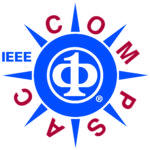AVKMT 2023: The 2nd IEEE International Workshop on Advanced Visual Knowledge Management Tools
Technical Program
*= in-person presentation in Torino
Towards Unlocking Sustainability Potentials – Adoption and Diffusion of Digital Innovation*
Barbara Steffen
BC4ECO – Visual Tools for the Development of a Shared Understanding and Pedagogical Approach between an International Consortium*
Andy Peruccon, Roisin Lyons, Amalia de Götzen, Tiziana Margaria and Luca Simeone
Goal of the workshop:
The workshop aims to foster cooperation among software practitioners and researchers of e.g., software engineering, industrial engineering, management, and design science to exchange the latest experience and research ideas on software engineering-driven tool support, specifically in order to enhance the transparency and alignment of knowledge across disciplines in organizations through the design, production and adoption of next generation visual tools.
Workshop theme:
Advanced visual knowledge management tools are a very attractive field for innovative interdisciplinary research. Organizations and thus practitioners face an increasing pressure to constantly adapt to new market trends, technologies and competition due to the VUCA1 impact on any aspect of business and IT. To respond to these changes, organizations need to increase their agility and dynamic capabilities. This requires increased collaboration across disciplines to achieve global transparency and to enable aligned decision making. The management and industrial engineering disciplines increasingly adopt canvases2 in brainstorming sessions as they help to visualize concisely complex contexts, fostering a common understanding. Design science research further investigates design methods of visual inquiry tools/canvases to allow for new methodologically sound canvases covering all relevant areas in need of collaboration within and across knowledge domains. While software developers are meanwhile used to visual technical models like, e.g., UML diagrams, engineers, management, communication and other domain experts are not. However, simpler and targeted visual tools are emerging as the way to go to better and more efficiently support intuition and cross-domain understanding. This tool support allows for decreased complexity, increased transparency and a new level of alignment and decision making. To make this possible, new techniques and methodologies are needed to be able to build better, more robust and more trusted systems for interdisciplinary collaboration. Here, aspects like guidance, safety/security, GDPR and user-friendliness need to be considered and integrated in the whole design process from the beginning.
Scope of the workshop:
Researchers and practitioners from both academia and industry, working in the areas of software engineering, process engineering, (knowledge) management, industrial engineering and design science are invited to discuss state of the art solutions, novel issues, ideas, recent developments, applications, methodologies, techniques, experience reports, and tools for the design, development, validation and use of visual knowledge management tools. Topics of interest include, but are not limited to the following:
- Advanced tool support for decision making
- Visual tools for knowledge representation and management
- Dependency management, hierarchization and integration in visual tools
- Software tools and platforms for knowledge integration and management
- Knowledge alignment and its integration in the business processes
- Sociotechnical design for interdisciplinary collaboration
- Transdisciplinary requirements for tool-supported alignment
- Cross-organizational and cross-team IT collaboration
- Towards the digital transformation of collaboration
- Barriers to adoption
1Volatility, uncertainty, complexity and ambiguity.
2A very popular and widely used canvas is the Business Model Canvas by Osterwalder (2008).
Paper Templates
IEEE Paper templates are available in MS Word 2003 and LaTex. All submissions must use US 8.5×11 letter page format.
Important Dates
Main Conference/Symposium
Main conference/symposium papers due: 15 January 2023Extended to 15 February 2023
Notification: 7 April 2023
Camera-ready and registration due: 7 May 2023 Updated: 18 May 2023
Journal then Conference Submissions
Due date: April 7, 2023
Notifications: April 30, 2023
Workshops, Fast Abstract, SRS Programs
EXTENDED: Workshop papers due: 21 April 2023
UPDATED: Notifications: 7 May 2023
UPDATED: Camera-ready and registration due: Updated: 18 May 2023
Submission Link
Please submit your paper on EasyChair
IEEE Conference Publishing Policies
All submissions must adhere to IEEE Conference Publishing Policies.
IEEE Cross Check
All submission will be screened for plagiarized material through the IEEE Cross Check portal.
Workshop Organizers
Tiziana Margaria, University of Limerick and Lero, Limerick, Ireland
Email: Tiziana.Margaria@ul.ie
Christoph Rasche, Universität Potsdam, Potsdam, Germany
Email: Christoph.Rasche@uni-potsdam.de
Barbara Steffen, Technische Universität Dortmund, Dortmund, Germany
Email: Barbara.Steffen@tu-dortmund.de
Program Committee
Steve Bosselmann, Technische Universität Dortmund, Germany
Barry Floyd, CalPoly, San Luis Obispo, CA, USA
Sami Hyrynsalmi, LUT University, Finland
Sonia Hyrynsalmi, LUT University, Finland
Roisin Lyons, University of Limerick, Ireland
Tiziana Margaria, University of Limerick and Lero, Ireland (Co-Chair)
Jacopo Mauro, Southern Denmark University, Odense, Denmark
Frederik Möller, Technische Universität Dortmund, Germany
Christoph Rasche, Universität Potsdam, Germany (Co-Chair)
Stephen Ryan, University of Limerick and Confirm, Ireland
Kari Smolander, LUT University, Finland
Barbara Steffen, Technische Universitat Dortmund, Germany (Co-Chair)

